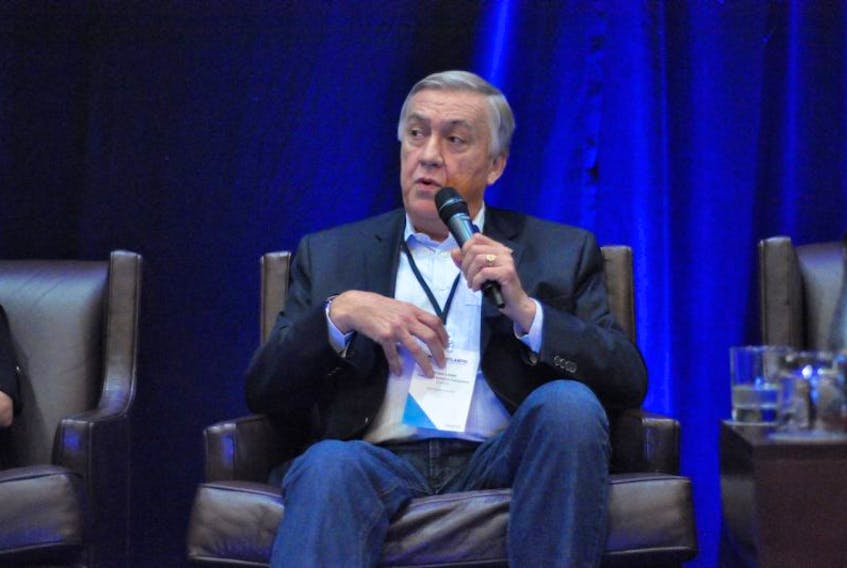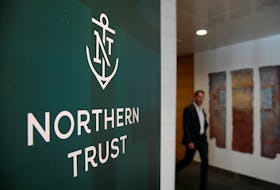Some are easier to come by, like friends and family, while others, like loans from financial institutions or investment from venture capitalists, require a little more finagling.
Bridging that gap and providing capital in exchange for convertible debt or equity in a company are what’s called angel investors.
While they’ve traditionally been wealthy individuals making solo investments, there’s a growing trend among angels investors organizing themselves into networks as a means to share research on a company and pool capital towards a greater investment.
“Everybody’s looking for a home run, everybody’s looking to make money, everybody’s looking to create jobs, they’re wanting to be on the front end of innovation and that’s what it’s about,” says Paul Antle, chair for the 2017 InvestAtlantic conference and president and CEO of Pluto Investments Inc.
It’s estimated there are only about 30 such networks across Canada, investing in a variety of sectors. Including himself, Antle figures there are probably 50 or so operating in Newfoundland.
Unlike venture capitalists (VC) that manage a fund of money belonging to other people, angels are typically dipping into their own money to fund high-risk investments that they hope will result in a higher return on investment.
That makes for a different dynamic between the angel investor and the investee than would exist with a bank or VC.
For Antle, as long as the idea is solid and a market exists for the product or service, the qualities of the individual making the pitch for backing and how he interacts with them accounts for the bulk of the formula for success.
“I’m not investing my money in a technology, I’m not investing my money in a corporation or a business, I’m investing it in you, the person. You’re going to make all this happen, your team is going to make all this happen.
“I’m jumping into your dream, so you better convince me that you’re passionate about your dream and believe there’s a future in order for me to help you get there.”
An integral component to the dynamic is trust built on honesty.
“It’s really important they’re aligned with their expectations in regard to the time frame that it might take to grow a business,” says First Angel Network (FAN) co-founder and director Brian E. Lowe, who views an investment as a partnership.
“If you’re not aligned and not honest on all fronts with one another, then you’re not going to have as good a partnership.”
Another aspect to the relationship that sets angels apart in the investment world is that their involvement is just as much about mentorship as it is about money.
“The value they bring in their mentorship is probably worth as much or more than their money,” says Craig Rowe, CEO and founder of St. John’s-based software company ClearRisk, which exists in part because of investment from FAN.
“If every single business started off by figuring out everything on their own, you’d never get there and you’d fall into all the traps that everyone else falls into.”
Rowe’s advice to startups and entrepreneurs looking for capital and mentorship is to look for it long before it’s required and, once acquired, take the steps to ensure the relationship remains strong.
“Nurture those relationships early and keep good relationships with your mentors and your backers because you’re always going to need follow-on capital, you’re always going to need advice and you need that door to be open and then pay it forward.”
Both Antle and Lowe say there’s a robust ecosystem in Newfoundland and Labrador that has been allowing for more success in innovation and technology. One of the centerpieces of that ecosystem is the Genesis Centre, Memorial University’s business incubator.
“We need organizations like that to get these groups’ investment ready because we want to put our money into what they’re doing as a business and not trying to help them understand how to operate a business,” says Antle, pointing to Memorial’s Centre for Entrepreneurship and Propel ICT as two other valuable support mechanisms.
Genesis CEO Michelle Simms says the organization has had longstanding relationships with angel investors in this province and throughout Canada, and is always seeking more.
“The nice thing about an angel investor is that they are going to tolerate more risks,” Simms says. “They’re coming in at a very early stage so they understand the thing may fail.
“They don’t want your first-born and they don’t want those securities that come along with traditional banks and finance instruments.”
Newfoundland and Labrador, with a tech sector growing at light speed and now valued at an estimated $1.6 billion, is in need of more angel investors.
As such, FAN’s recent decision to establish roots in the province with the addition of M3 Sonar Consulting owner and former Propel ICT CEO Gary Dinn as its provincial director is exciting news.
“Having them have an actual person on the ground here now means a lot to us,” Simms says. “We’re going to definitely try our best to fill their pipeline.”
Lowe says they’re actively seeking new angels to join the network.
“We’re out to do two things, really: that is grow the angel ecosystem and do more deals going forward as we increase our numbers through active angels being engaged.”
Twitter: kennoliver79









